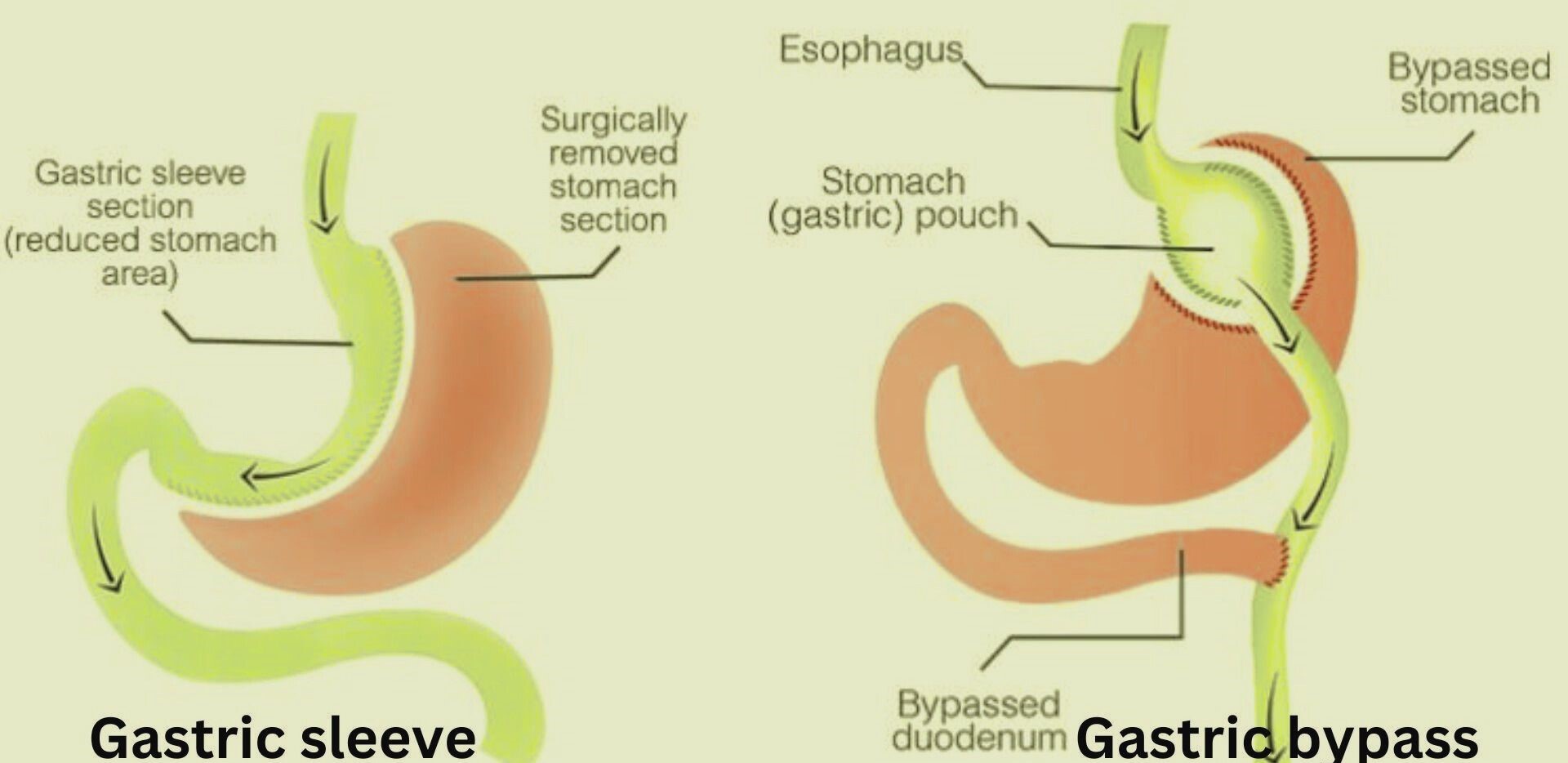What are differences between gastric sleeve and gastric bypass surgery?
Patients who have severe abdominal adhesions from a prior operation benefit from the gastric sleeve procedure. Patients who smoke, use aspirin, or have a history of ulcers may also benefit from having a sleeve gastrectomy.

Patients with severe acid reflux (GERD) and a slow metabolism benefit more from gastric bypass. Gastric bypass is the best option for patients who have previously undergone Nissen fundoplication anti-reflux surgery, in which the stomach was wrapped around the esophageal valve. RNY bypass is preferable for people who need a lot of insulin.
Gastric bypass offers somewhat higher predicted excess weight loss than gastric sleeve and is therefore more suited to treating obesity-related health issues. This is the key distinction between these two procedures. On the other hand, compared to a sleeve gastrectomy, the RNY gastric bypass has greater rates of hazards and more complications.
Because a portion of the intestines is not rerouted or bypassed during a gastric sleeve procedure, it is less invasive than a gastric bypass. The body is unable to absorb vital nutrients and minerals as a result of malabsorption. As a result, it's critical to continue taking vitamins and dietary supplements following gastric bypass.
In gastric bypass, there is a chance to expand the new stomach (stoma), although this is less likely with a gastric sleeve because the pyloric valve is preserved. Patients who have had sleeve surgery have a wide range of viable options for a potential future revision procedure, whereas RNY patients have fewer options.
How does gastric sleeve work?
The new stomach retains around 85% less food (and calories) after a sleeve gastrectomy, so the patient feels satisfied more quickly and for longer.
- Gastric sleeve surgery is a restrictive treatment; a reduced stomach volume implies fewer calories. The gastric sleeve operates through these three methods, i.e., the patient learns to exercise portion management because they are unable to eat a large meal at once.
- The majority of the hunger-inducing hormones that are found in the upper stomach are eliminated. Much less of the gut hormones (Ghrelin) that affect appetite are secreted by the new stomach.
- After gastric surgery, the body regains its sensitivity to leptin levels in the blood flow. Satiety and a sense of fullness are caused by the leptin hormone.
The new, smaller pouch has a similar impact on malabsorption to gastric bypass in that it speeds up stomach emptying and reduces the amount of time food has to be digested.
For further information or to arrange a consultation for gastric bypass and gastric sleeve please contact us.
As Tourkey Health, we are committed to providing all kinds of services and support to our patients regarding gastric bypass and gastric sleeve.
